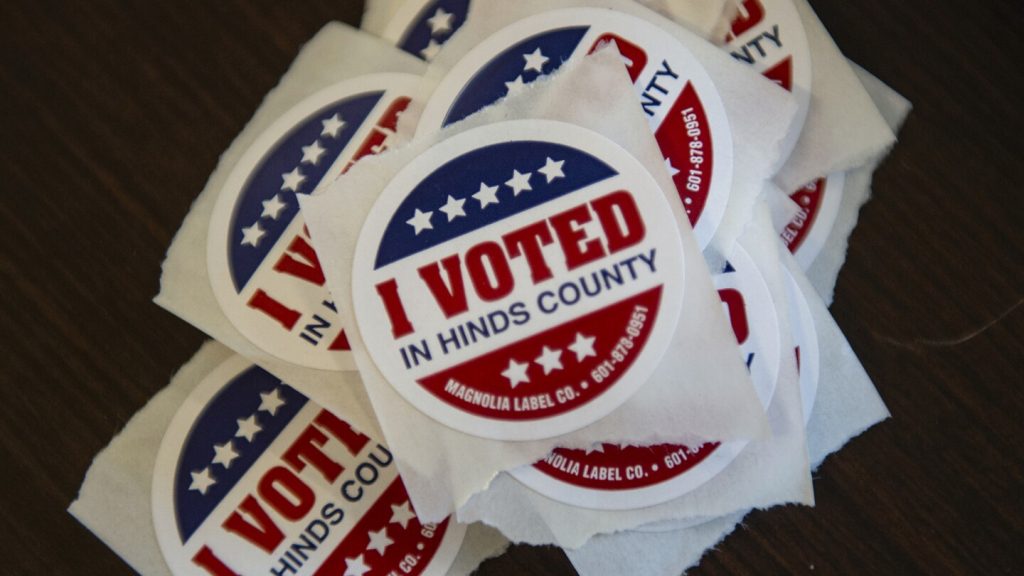A federal court ruled that Mississippi cannot count mail-in ballots that arrive shortly after Election Day, in a decision that is not expected to impact the upcoming Nov. 5 election. The court stated that counting late ballots violates federal law, even if they are postmarked by Election Day. While the ruling may not have a significant effect on elections in heavily Republican Mississippi, it could potentially impact voting in swing states if the Supreme Court issues a ruling on the matter. The case originated from challenges to Mississippi’s election law by the Republican National Committee, the Libertarian Party of Mississippi, and others, which had been dismissed by a lower court.
The three-judge panel of the 5th U.S. Circuit Court of Appeals reversed the lower court’s decision and sent the case back for further action. The ruling stated that it would not be returned to the lower court until a week after the deadline for appealing the decision, putting the impact beyond the Nov. 5 election date. This decision has drawn criticism from legal experts, with UCLA law professor Richard Hasen calling it a “bonkers opinion” and noting that other courts have rejected similar arguments in the past. The Republican National Committee praised the ruling for upholding “commonsense ballot safeguards” and ensuring a transparent election process.
Republicans have been involved in over 100 lawsuits challenging various aspects of voting procedures in the aftermath of the 2020 election. The ruling has highlighted the importance of having transparent election processes that end on the designated election day. Mississippi is one of several states that allow mailed ballots to be counted if they are postmarked by Election Day, along with swing states like Nevada and other states that heavily rely on mail-in voting. The lawsuit challenging Mississippi’s law argued that it improperly extends the federal election, leading to the dilution of valid votes by late and invalid ballots.
Mississippi Attorney General Lynn Fitch, a Republican, is defending the state’s top election official, Secretary of State Michael Watson, against the lawsuit challenging the state’s election law. Watson has stated that his office will explore all available legal options in response to the ruling. The members of the appellate panel that reversed the lower court decision were all nominated to the 5th Circuit by former President Donald Trump. Despite the partisan nature of the challenge, there is bipartisan support for the Mississippi practice, with both Republican and Democratic officials involved in defending the state’s election procedures.
Overall, the ruling on Mississippi’s mail-in ballot counting procedures has raised concerns about the impact on future elections, particularly in swing states, if the Supreme Court were to weigh in on the matter. The decision reflects broader legal battles surrounding voting rights and election laws in the aftermath of the 2020 election, with ongoing challenges and disputes over various voting procedures. As the Nov. 5 election approaches, the outcome of these legal battles could have significant implications for the integrity and transparency of the electoral process, both in Mississippi and across the country.















